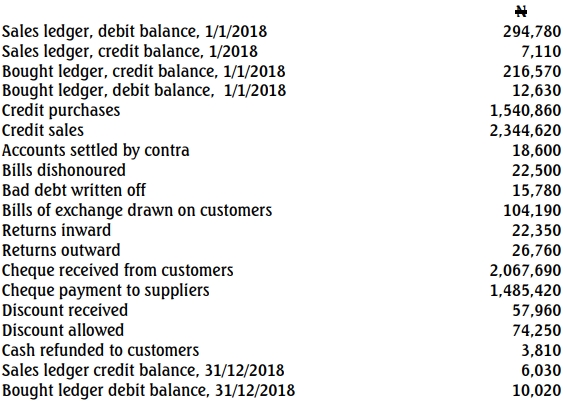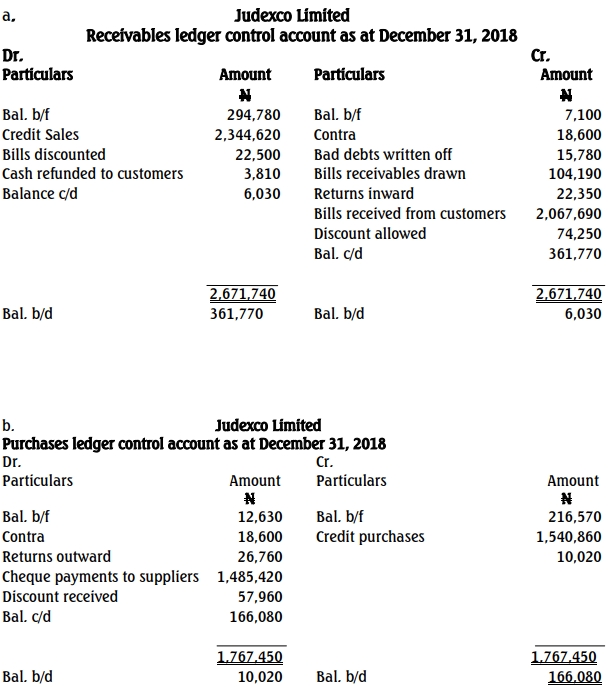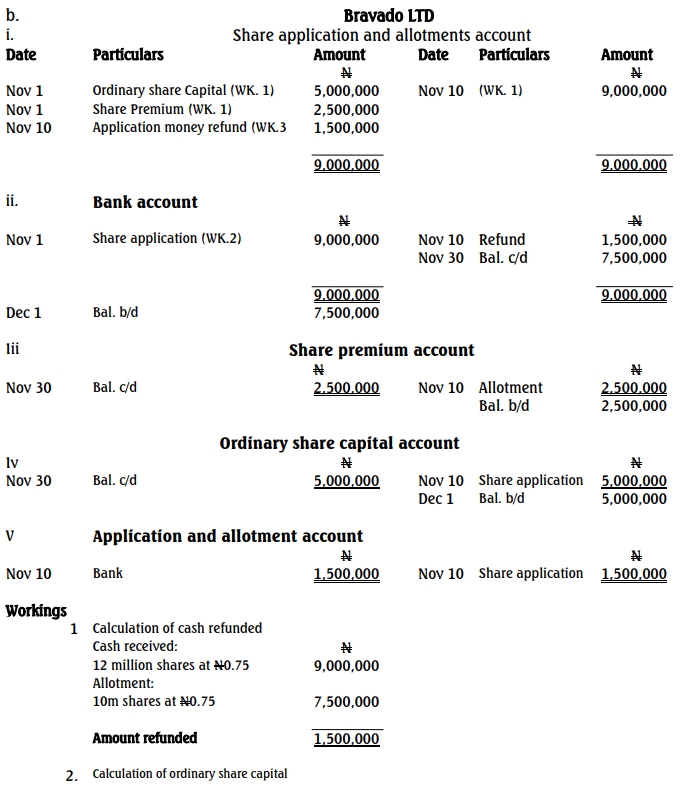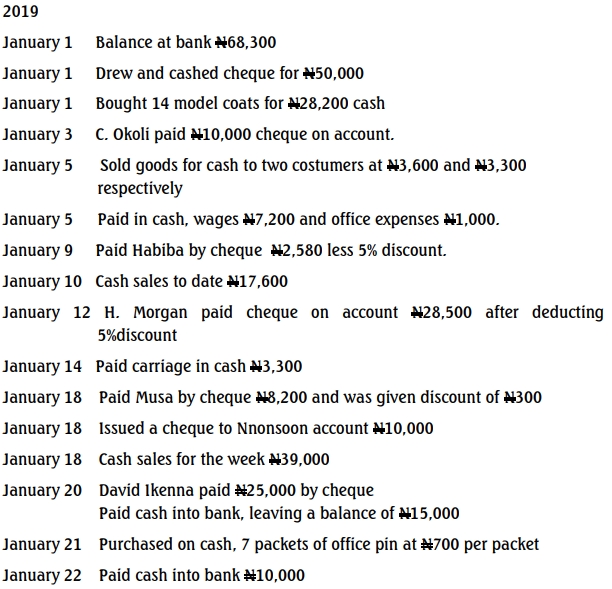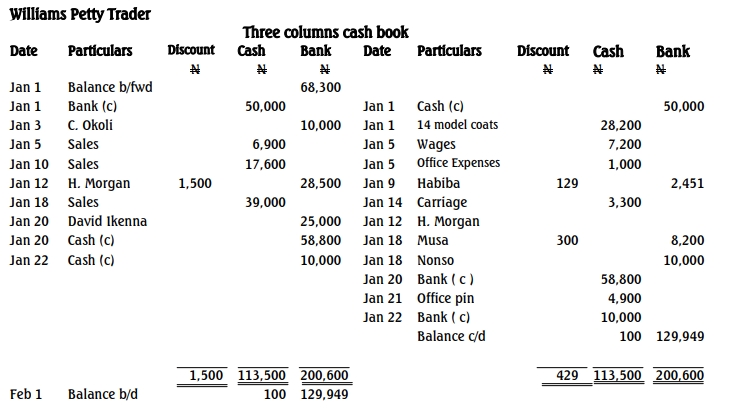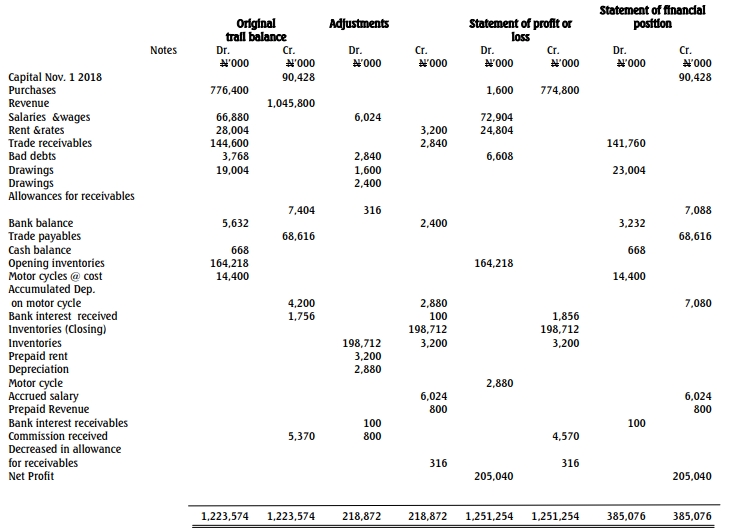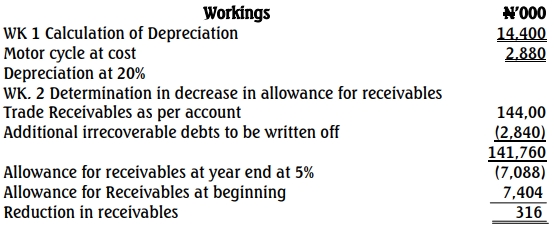- 20 Marks
Question
Babatunde and Rasheed have been in partnership for several years, sharing profits and losses in the ratio 2:1 respectively. Their statement of financial position as at December 31, 2019, is shown below:
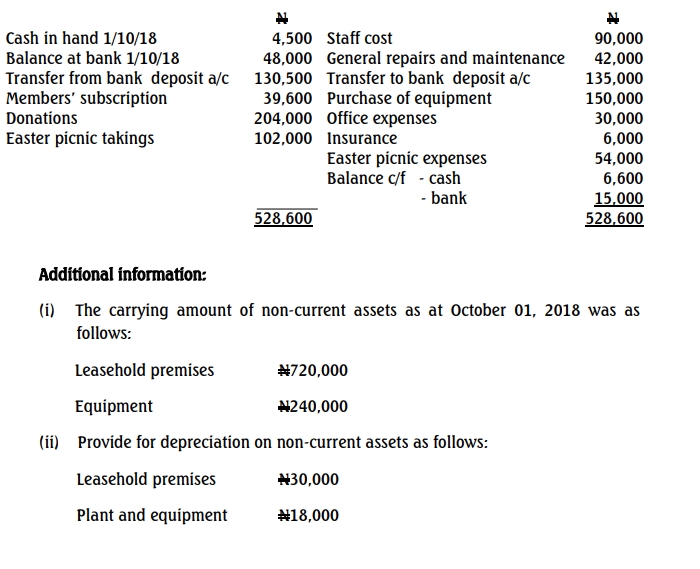
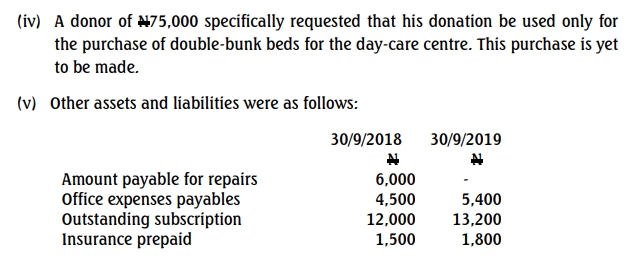
Required:
Prepare the following accounts:
a. Revaluation account
b. Capital accounts
c. Bank account
Answer
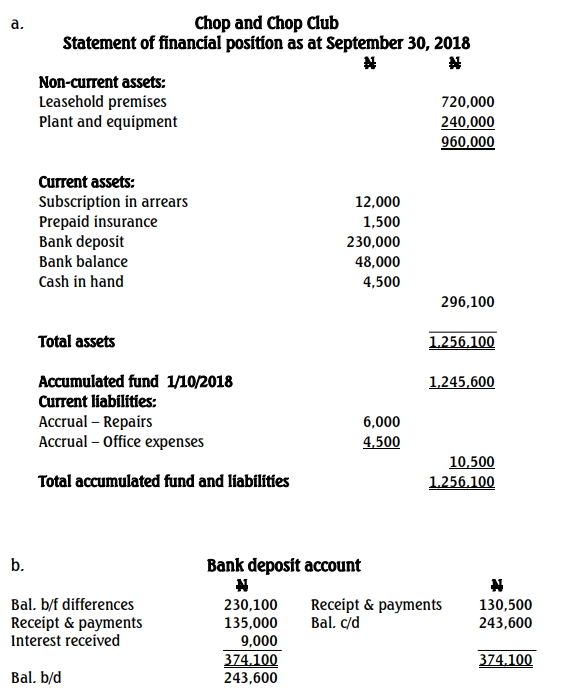
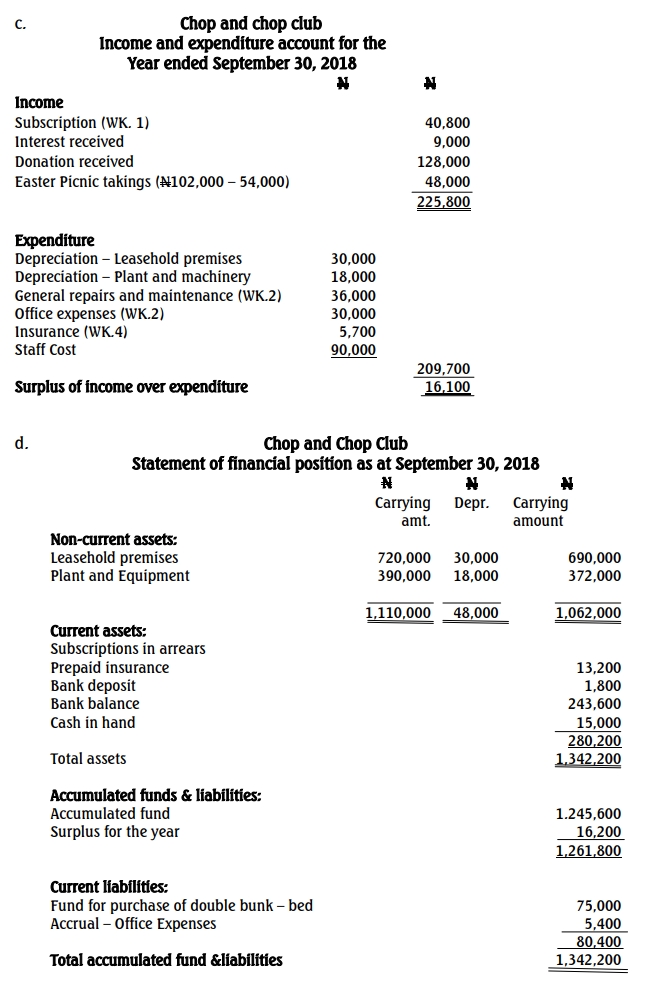
- Uploader: Theophilus

